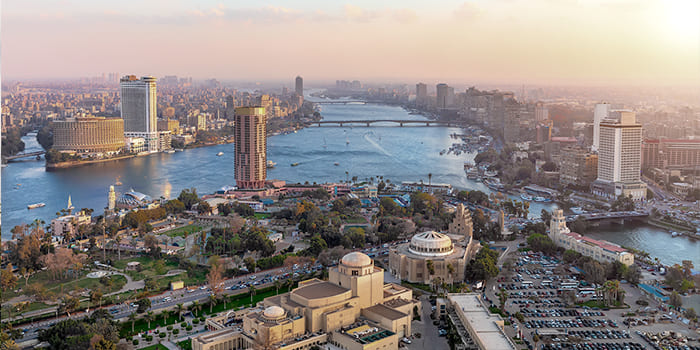
Egypt was named as Africa’s top investment destination for 2021, followed by Morocco and South Africa, according to a report published by South Africa’s Rand Merchant Bank (RMB). Based on their operating environments, other high-scoring countries have also moved up the rankings – notably Rwanda and Botswana, which now sit in fourth and fifth place respectively.
The interconnectedness of economies widens the investment scope: stakeholders can consider the continent from a regional perspective, leveraging the performance of one state (country) against another.
Investment destinations in Africa have previously been ranked based on the tenets of economic activity and business operating environment, but RMB Africa Economist Daniel Kavishe said COVID-19 had muddied the analytical waters and compelled the team to adapt their methodology.
“This year demanded more nuance,’ said Kavishe. “In addition to traditional indicators, corporates and investors needed to be made aware of the state of a country’s government finances and its ability to aid its economy in crisis. The inclusion of a fiscal score in our rankings aimed to score governments’ fiscal positions and provided a basis from which investors can understand specific jurisdictions.”
“Although the pandemic brought much devastation, it also enabled opportunities for reimagining policies and trade relationships. Increasingly clear now is that home-grown strategies to tackle poverty, inequality and unemployment across Africa must be implemented. If not, all of Africa suffers,” he added.
The Top Ten countries in Africa ranked by RMB for their attractiveness to investors were:
- Egypt – While Egypt’s economy was hard hit by the pandemic, it was also one of the first to bounce back to a path of growth. This, owing to the swift measures it introduced and the fact that it been on a stronger footing at the outbreak of COVID-19.
- Morocco – The Moroccan economy continues to benefit from political stability. A special fund to combat COVID-19 was established in 2020, representing 2.7% of GDP. Two-thirds of the funds were to be provided by private sources and one third by the government.
- South Africa – The southern-most country in Africa offers a strong manufacturing and retail base that will continue to support southern African regional economies with goods and services.
- Rwanda – Rwanda continues to benefit from the efforts it has made to improve its operating environment. As part of the National Strategy for Transformation (NST), various investments should support the construction and energy sectors over the next few years.
- Botswana – High foreign-exchange reserves have enabled it to weather the pandemic-induced economic storm better than most. The Pula Fund, a sovereign fund created in 1994 that finances a large part of the budget deficit, has meant that fiscal dependency on debt has been low.
- Ghana – Ghana entered the current crisis on a relatively stronger footing than its African peers. Structurally, its economy has seen major shifts over the past few years, positioning it for significant growth going forward. This is supported not only by primary-sector industries like oil and gold but accelerated development in the tertiary sector.
- Mauritius – Aided by an extremely favourable tax regime, its financial sector will remain one of the main drivers of Mauritius’ economy into the future – notably through cross-border investment activities and banking services.
- Côte d’Ivoire – A rise in private investment should continue to fuel construction, agri-industry and services (trade, transport and ICT in particular). Private investment will benefit from the impetus provided by public investment under the 2016-20 National Development Plan.
- Kenya – The Kenyan government’s efforts to ensure that implementation of the ‘Big Four’ plan focused on industrialisation, universal health coverage, food security and affordable housing will invariably lead to fast economic growth.
- Tanzania – Tanzania has been on a rapid path of development over the past few years. This growth can be attributed to consistent public investment from the government in key secondary and tertiary sectors, ranging from the energy sector to advancements in the telecommunications and finance sectors.
